Voices Through Youth Chicana Author
How does learning about culture make learning easier? Diversity, inclusion, and belonging often contribute to bringing awareness about culture and learning. Attempts to enhance the implementation of diversity, inclusion, and culture are significant parts of learning. However, learning about culture is often roiled by laws that govern how students should gain cultural and self-identity from kindergarten through twelfth grade. Often, the words Ethnic Studies sway educators from formulating cultural connections. It is with ethnic studies that culture develops minds, breaks down stereotypes, and lays cultural foundations for all races. Ethnic Studies concentrate on cultures, history stories, colonization, and struggles of people of color. This paper focuses on educating our Chicana youth through Chicana authors.
Following the civil rights movements of the 1960s, educators and social justice leaders framed programs to diversify K-12 and extend more accessibility to historically disempowered groups while strengthening classroom content for all students (Bradford, 2023). For many years, discussions on implementing a diverse and inclusive curriculum have taken center stage in the K-12 system. Congruent to these discussions, Ethnic Studies has been a double-edged sword. Some states welcome the teaching of culture, and others threaten those who teach about culture and historical realities with monetary punishment and deletion of programs. Students need to know who they are before they know where they are going.
This reflection connects Chicana theory with the Mexican-American girls (Chicanitas) I teach at a south-side school in Tucson, Arizona. They live in a barrio where gangs and poverty levels play a significant role in deciding if they graduate high school. My chicanitas must know their historical roots to identify with who they are. They need to know that Reies López Tijerina fought for the rights of dispossessed Hispanos in 1846-1848. They must know the pivotal role Dolores Huerta held in the United Farm Worker Movement. My chicanitas need to internalize that their voice and leadership should never take a back seat. They deserve to know that their families crossed the border into the U.S. at the turn of the century because they fled the upheaval of the Mexican Revolution in 1910 (García, 2014). Their culture needs to mold their self-identity.
“Identity is that essential core of who we are as individuals, the conscious experience of the self-inside”-Kaufman (Anzaldúa, 1999, p. 69).
A deeper dive into these Chicana women offers a valuable synopsis of how the Chicano movement has impacted women’s traditional cultural perspectives and how the racist exploitation of Chicanas has affected Chicana feminism. This type of Chicana theory inspires me to teach students about the ideology of the traditional Mexican woman’s role. In January 2024, I began a book club with ten sixth through eighth-grade boys and girls. Yes, boys tambien. Although, it is vital that my girls strengthen their understanding of Chicana feminism. It is equally essential that my boys do as well.
Guadalupe García McCall is a Texan Chicana retired educator, professor, and author. Her book All the Stars Denied is a novel about the hidden history of the United States and its first mass deportation event that swept up hundreds of thousands of Mexican American citizens during the Great Depression. Estrella, the youth main character in the story, organizes a protest against the treatment of Tejanos, and she and her family become targets of the repatriation efforts to send Mexicans to Mexico (McCall, 2018). Estrella breaks the stereotypical traditional Mexican female role. Students must internalize history and labels. Despite the racial barrier, K-12 laws offer the Mexican Raza in Arizona. Educators like me appreciate how students gain cultural and self-identity through Chicana authors. Students learn that reading the world is not simply reading words from a page. They gain protection against the oppressive notion of American-only lessons about history. Learning about Chicana feminists creates well-rounded youth with consciences, which transcends into their learning and activism. I encourage all educators to set vulnerable fears aside and provide these cultural experiences. We cannot allow racist educational laws to strip language and culture from our future leaders and raza. Learning about culture makes learning easier and sets students on the pathway to higher educational opportunities.
References
Anzaldúa, G. (1999). Borderlands La Frontera the New Mestiza. Https:doi//10.1002/9781
405177603.
Bradford, V. (2023). DEI education in America actually dates back to the 18th century. The
Washington post (Washington, D.C. 1974. Online).
McCall, G. (2018). All the Stars Denied. Lee & Low Books.
Learn More:
University of Arizona Mexican American Studies
Grace Tapia-Beltran is a doctoral student in Mexican American Studies in the College of Social & Behavioral Sciences at The University of Arizona.

